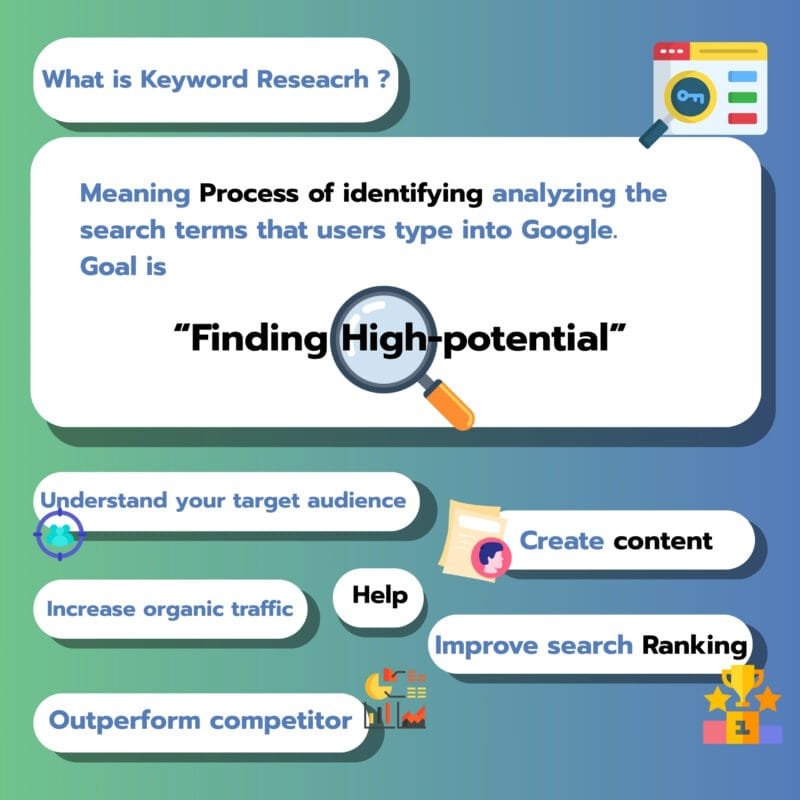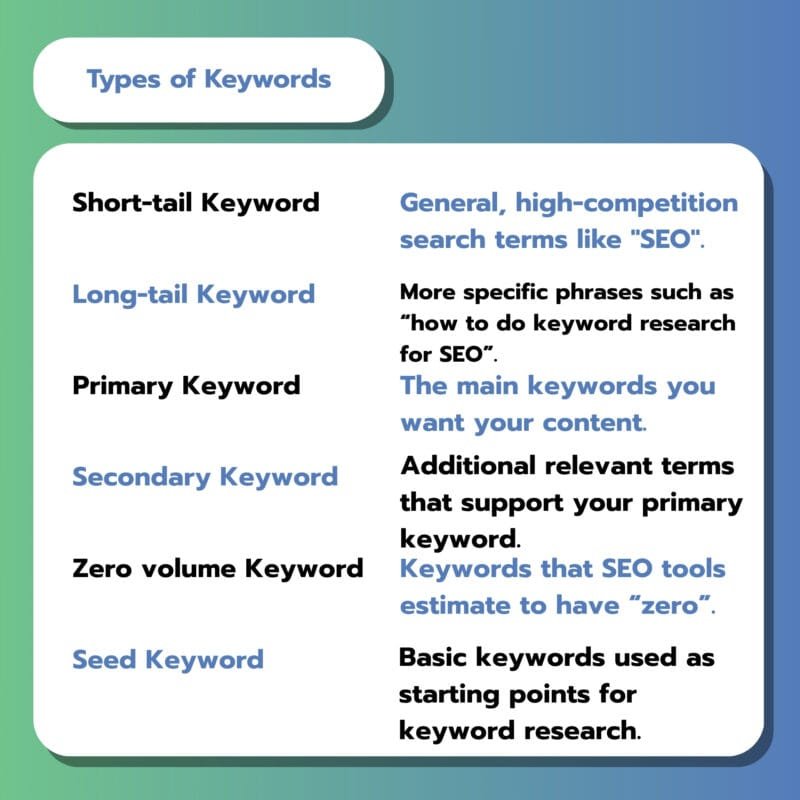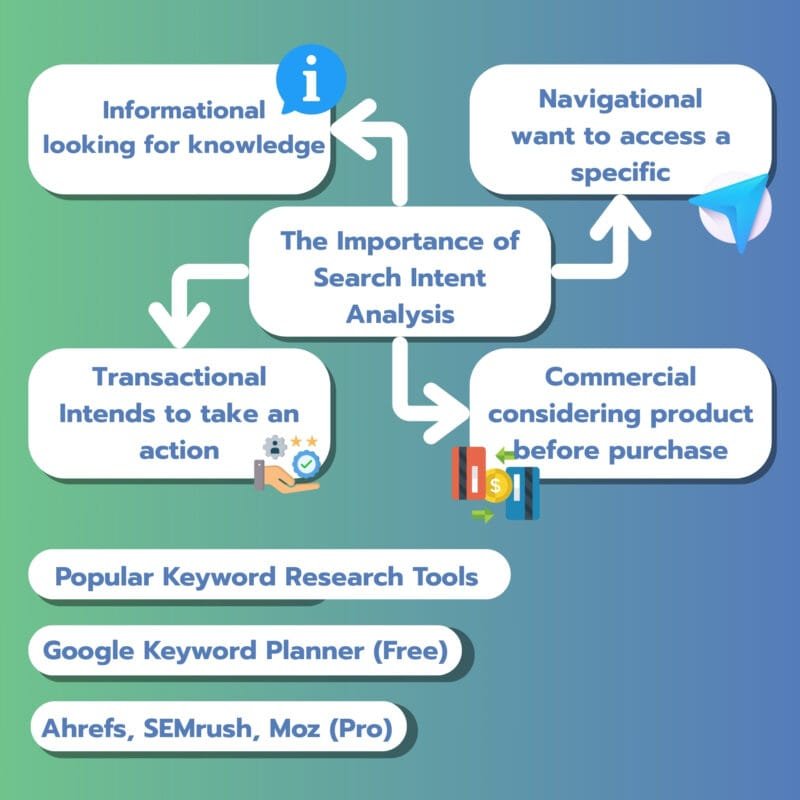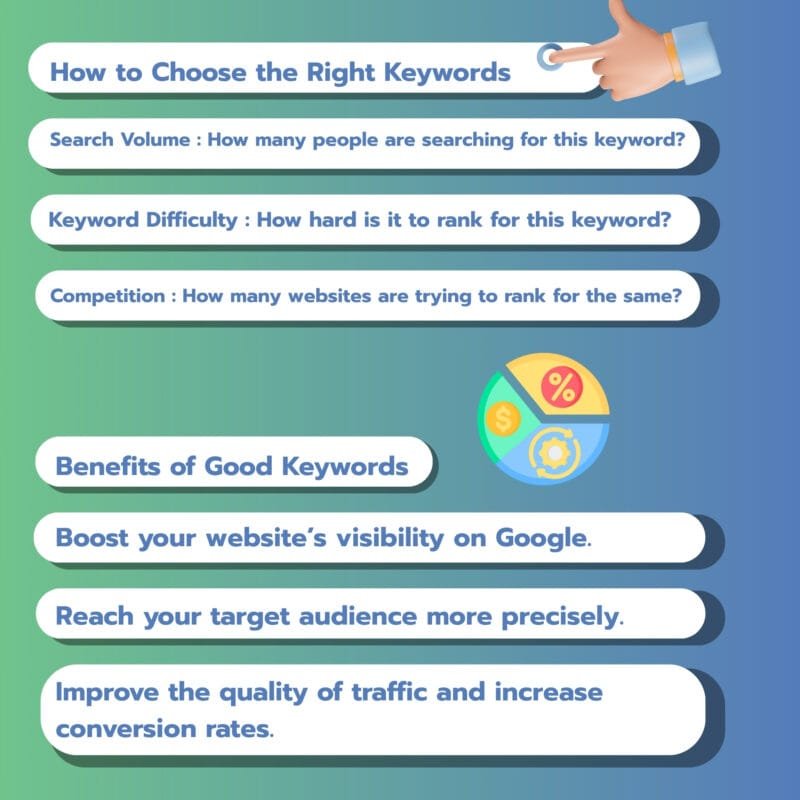
It’s undeniable that if you want your website to rank high in search results, SEO is essential. A core element of successful SEO is using the right keywords—something you simply can’t afford to overlook. This article will explore how keyword research plays a vital role in achieving SEO success.
What is Keyword Research?

Keyword research is the process of identifying and analyzing the search terms that users type into Google, Bing, and other search engines. The goal is to find high-potential keywords that can attract organic traffic to your website. This forms the foundation of an effective SEO strategy.
Keyword research helps you:
- Understand your target audience – Know what they’re interested in, what they’re searching for, and which terms they’re using.
- Create content that resonates – Craft articles, videos, or other content that meets the needs of your target audience.
- Increase organic traffic – Attract visitors genuinely interested in your content without having to pay for ads.
- Improve search rankings – Enhance your chances of ranking on top of search results and increasing visibility.
- Outperform competitors – Analyze your competitors’ keywords and strategize to gain an edge.
Types of Keywords:

- Short-tail keywords: General, high-competition search terms like “SEO” or “digital marketing”.
- Long-tail keywords: More specific phrases such as “how to do keyword research for SEO”. These have lower search volumes but higher intent.
- Primary keywords: The main keywords you want your content or page to rank for.
- Secondary keywords: Additional relevant terms that support your primary keyword.
- Zero volume keywords: Keywords that SEO tools estimate to have zero search volume, yet can drive traffic when used in the right SEO strategy.
- Seed keywords: Basic keywords used as starting points for keyword research.
The Importance of Search Intent Analysis
Understanding search intent is key to creating content that meets user needs. Search intent can be divided into four main types:

- Informational – The user is looking for information or knowledge.
- Navigational – The user wants to access a specific website or page.
- Transactional – The user intends to take an action, such as making a purchase.
- Commercial – The user is considering or comparing products/services before making a decision.
Here are some commonly used tools for keyword research:
- Google Keyword Planner (Free)
- Ahrefs, SEMrush, Moz (Premium)
- Clearscope – Great for analyzing which terms to use in your content
How to Choose the Right Keywords
You can select appropriate keywords by considering these three factors:
- Search Volume – How many people are searching for this keyword?
- Keyword Difficulty – How hard is it to rank for this keyword?
- Competition – How many websites are trying to rank for the same keyword?
Benefits of Good Keywords
- Boost your website’s visibility on Google.
- Reach your target audience more precisely.
- Improve the quality of traffic and increase conversion rates.

You should naturally incorporate keywords into:
- Title Tag
- Meta Description
- Headings (H1, H2, etc.)
- Alt Text (for images)
Note: Avoid “keyword stuffing” or using irrelevant keywords.
Keyword Strategy
You should have a clear plan outlining:
- Which keywords you will use
- The goals they support (traffic, conversions, brand awareness, etc.)
Also, regularly update your keyword strategy to keep up with trends and user behavior. Search patterns and user intent constantly evolve, so consistently reviewing and adjusting your keyword strategy ensures that your content stays aligned with both user needs and search engine algorithms.
Sources: clearscope.io, bizsoft.co.th
If you want your business to reach online customers and achieve sustainable marketing results, we are happy to provide consultation on what you need.
For further inquiries, contact us at:
Tel. 093 696 4498 Line OA: https://lin.ee/po8XduU
E-mail: mongkontep@pkindev.com
Inverze Solutions Co., Ltd. has received numerous awards for its achievements.
